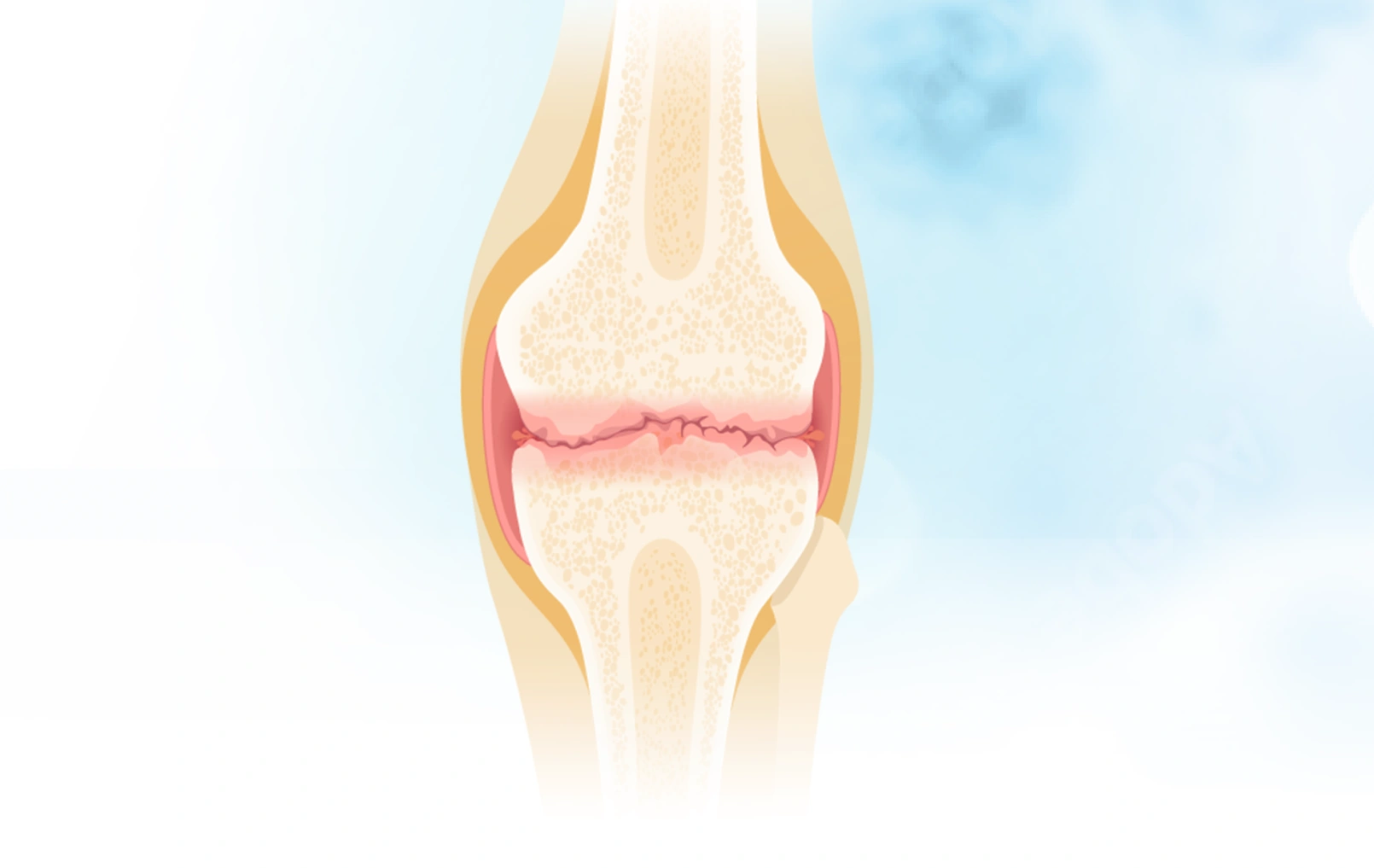Allocetra™ local injection for patients with moderate to end-stage knee osteoarthritis
Intra-articular injection into the target knee joint by a healthcare professional.

Osteoarthritis: a growing market with significant potential
Osteoarthritis (OA), characterized by the progressive wear of joint cartilage, is the most common chronic degenerative joint disease, affecting an estimated 51.9 million adults in the United States and 527.8 million globally (15% of the global adult population). Commonly considered a disease of old age, an estimated 11.6 million U.S. adults suffering from osteoarthritis are of working age (20-64 years).
Osteoarthritis may affect the knees, hips, hands, spine, and other joints. An estimated 24.7 million U.S. adults, or 1 in 10, are living with knee osteoarthritis today. The number of knee replacement surgeries is growing every year and is expected to rise from approximately 680,000 Americans in 2014 to 1.28 million Americans by 2030.
People living with osteoarthritis may experience a spectrum of symptoms, ranging from mild, occasional discomfort to severe, chronic pain. Regardless of the severity or stage of their osteoarthritis, the impact on daily life is significant when everyday activities like walking or climbing stairs become too painful. Osteoarthritis is among the most challenging joint diseases to treat, and currently, no cure is available. Existing treatments focus on managing pain and improving joint function to enhance the quality of life for those affected.
The economic burden of osteoarthritis on the U.S. healthcare system is substantial, representing hundreds of billions of dollars annually and resulting in over 900,000 hospitalizations. Joint pain remains the primary reason for doctor’s office visits in the U.S., underscoring the significant impact of this condition. The global knee osteoarthritis market, valued at $5.9 billion in 2022, is projected to grow at a CAGR of 9.3%, reaching $13.14 billion by 2031, according to a report by Intellectual Market Insights Research.
Macrophage modulation is an emerging new target for osteoarthritis treatment
A large body of research points to macrophages as a key therapeutic target in patients with osteoarthritis.
The pathogenesis of osteoarthritis can affect the entire joint, including cartilage, synovial tissue, subchondral bone, and the joint capsule, as well as inflammation of the synovium (Loeser et al. 2012).
The synovium of osteoarthritis patients shows an abnormal infiltration of mononuclear cells in both the early and late stages of osteoarthritis (Benito et al. 2005). Among the infiltrating immune cells, macrophages play a critical role in osteoarthritis synovitis through their phagocytic activity and secretion of inflammatory mediators and have been recognized as possible players in disease development and progression (Fichadiya et al. 2016; Orlowsky and Kraus 2015; Sohn et al. 2012). High pro-inflammatory macrophage numbers are detected in osteoarthritis patients, and amounts of activated macrophages correlate with clinical symptoms (Kraus et al. 2016; Liu et al. 2018).

The role of innate immunity in osteoarthritis: when our first line of defense goes on the offensive.
Eric W. Orlowsky and Virginia Byers Kraus

Characterizing heterogeneity in the response of synovial mesenchymal progenitor cells to synovial macrophages in normal individuals and patients with osteoarthritis.
Akash Fichadiya, Karri L Bertram, Guomin Ren, Robin M Yates and Roman J Krawetz

An emerging target in the battle against osteoarthritis: macrophage polarization.
Yulong Sun, Zhuo Zuo and Yuanyuan Kuang

Characterizing heterogeneity in the response of synovial mesenchymal progenitor cells to synovial macrophages in normal individuals and patients with osteoarthritis.
Akash Fichadiya, Karri L Bertram, Guomin Ren, Robin M Yates and Roman J Krawetz

Synovial macrophages in osteoarthritis: the key to understanding pathogenesis?
Amanda Thomson and Catharien M. U. Hilken

Thus, therapies directed toward macrophages appear to be an emerging and attractive therapeutic target for osteoarthritis. Given the pivotal role of activated macrophages in osteoarthritis development and progression, restoring the balance of the immune microenvironment by regulating the macrophages in the joints of osteoarthritis patients may confer clinical benefits in these patients.
We believe the Allocetra™ cell-based platform, which targets macrophages and macrophage-associated inflammatory pathways, may be a promising therapeutic strategy in the treatment of osteoarthritis.
ABOUT ALLOCETRA™